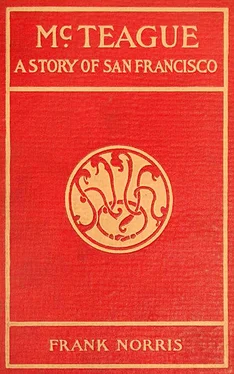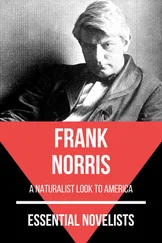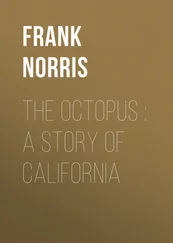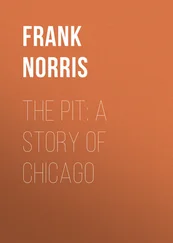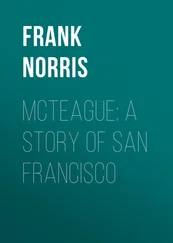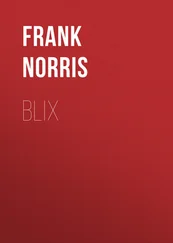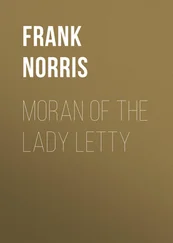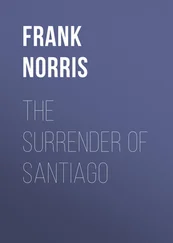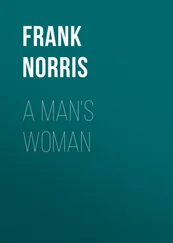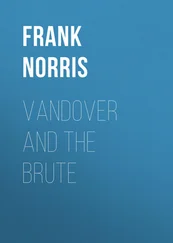Frank Norris - McTEAGUEA Story of San Franciscoby
Здесь есть возможность читать онлайн «Frank Norris - McTEAGUEA Story of San Franciscoby» весь текст электронной книги совершенно бесплатно (целиком полную версию без сокращений). В некоторых случаях можно слушать аудио, скачать через торрент в формате fb2 и присутствует краткое содержание. Год выпуска: 1899, Жанр: Классическая проза, на английском языке. Описание произведения, (предисловие) а так же отзывы посетителей доступны на портале библиотеки ЛибКат.
- Название:McTEAGUEA Story of San Franciscoby
- Автор:
- Жанр:
- Год:1899
- ISBN:нет данных
- Рейтинг книги:5 / 5. Голосов: 1
-
Избранное:Добавить в избранное
- Отзывы:
-
Ваша оценка:
- 100
- 1
- 2
- 3
- 4
- 5
McTEAGUEA Story of San Franciscoby: краткое содержание, описание и аннотация
Предлагаем к чтению аннотацию, описание, краткое содержание или предисловие (зависит от того, что написал сам автор книги «McTEAGUEA Story of San Franciscoby»). Если вы не нашли необходимую информацию о книге — напишите в комментариях, мы постараемся отыскать её.
McTEAGUEA Story of San Franciscoby — читать онлайн бесплатно полную книгу (весь текст) целиком
Ниже представлен текст книги, разбитый по страницам. Система сохранения места последней прочитанной страницы, позволяет с удобством читать онлайн бесплатно книгу «McTEAGUEA Story of San Franciscoby», без необходимости каждый раз заново искать на чём Вы остановились. Поставьте закладку, и сможете в любой момент перейти на страницу, на которой закончили чтение.
Интервал:
Закладка:
At length she could stand it no longer, and one day presented herself before Uncle Oelbermann as he sat in his office in the wholesale toy store, and told him she wanted to have four hundred dollars of her money.
"But this is very irregular, you know, Mrs. McTeague," said the great man. "Not business-like at all."
But his niece's misfortunes and the sight of her poor maimed hand appealed to him. He opened his check-book. "You understand, of course," he said, "that this will reduce the amount of your interest by just so much."
"I know, I know. I've thought of that," said Trina.
"Four hundred, did you say?" remarked Uncle Oelbermann, taking the cap from his fountain pen.
"Yes, four hundred," exclaimed Trina, quickly, her eyes glistening.
Trina cashed the check and returned home with the money — all in twenty-dollar pieces as she had desired — in an ecstasy of delight. For half of that night she sat up playing with her money, counting it and recounting it, polishing the duller pieces until they shone. Altogether there were twenty twenty-dollar gold pieces.
"Oh-h, you beauties!" murmured Trina, running her palms over them, fairly quivering with pleasure. "You beauties! IS there anything prettier than a twenty-dollar gold piece? You dear, dear money! Oh, don't I LOVE you! Mine, mine, mine — all of you mine."
She laid them out in a row on the ledge of the table, or arranged them in patterns — triangles, circles, and squares — or built them all up into a pyramid which she afterward overthrew for the sake of hearing the delicious clink of the pieces tumbling against each other. Then at last she put them away in the brass match-box and chamois bag, delighted beyond words that they were once more full and heavy.
Then, a few days after, the thought of the money still remaining in Uncle Oelbermann's keeping returned to her. It was hers, all hers — all that four thousand six hundred. She could have as much of it or as little of it as she chose. She only had to ask. For a week Trina resisted, knowing very well that taking from her capital was proportionately reducing her monthly income. Then at last she yielded.
"Just to make it an even five hundred, anyhow," she told herself. That day she drew a hundred dollars more, in twenty-dollar gold pieces as before. From that time Trina began to draw steadily upon her capital, a little at a time. It was a passion with her, a mania, a veritable mental disease; a temptation such as drunkards only know.
It would come upon her all of a sudden. While she was about her work, scrubbing the floor of some vacant house; or in her room, in the morning, as she made her coffee on the oil stove, or when she woke in the night, a brusque access of cupidity would seize upon her. Her cheeks flushed, her eyes glistened, her breath came short. At times she would leave her work just as it was, put on her old bonnet of black straw, throw her shawl about her, and go straight to Uncle Oelbermann's store and draw against her money. Now it would be a hundred dollars, now sixty; now she would content herself with only twenty; and once, after a fortnight's abstinence, she permitted herself a positive debauch of five hundred. Little by little she drew her capital from Uncle Oelbermann, and little by little her original interest of twenty-five dollars a month dwindled.
One day she presented herself again in the office of the whole-sale toy store.
"Will you let me have a check for two hundred dollars, Uncle Oelbermann?" she said.
The great man laid down his fountain pen and leaned back in his swivel chair with great deliberation.
"I don't understand, Mrs. McTeague," he said. "Every week you come here and draw out a little of your money. I've told you that it is not at all regular or business-like for me to let you have it this way. And more than this, it's a great inconvenience to me to give you these checks at unstated times. If you wish to draw out the whole amount let's have some understanding. Draw it in monthly installments of, say, five hundred dollars, or else," he added, abruptly, "draw it all at once, now, to-day. I would even prefer it that way. Otherwise it's — it's annoying. Come, shall I draw you a check for thirty-seven hundred, and have it over and done with?"
"No, no," cried Trina, with instinctive apprehension, refusing, she did not know why. "No, I'll leave it with you. I won't draw out any more."
She took her departure, but paused on the pavement outside the store, and stood for a moment lost in thought, her eyes beginning to glisten and her breath coming short. Slowly she turned about and reentered the store; she came back into the office, and stood trembling at the corner of Uncle Oelbermann's desk. He looked up sharply. Twice Trina tried to get her voice, and when it did come to her, she could hardly recognize it. Between breaths she said:
"Yes, all right — I'll — you can give me — will you give me a check for thirty-seven hundred? Give me ALL of my money."
A few hours later she entered her little room over the kindergarten, bolted the door with shaking fingers, and emptied a heavy canvas sack upon the middle of her bed. Then she opened her trunk, and taking thence the brass match-box and chamois-skin bag added their contents to the pile. Next she laid herself upon the bed and gathered the gleaming heaps of gold pieces to her with both arms, burying her face in them with long sighs of unspeakable delight.
It was a little past noon, and the day was fine and warm. The leaves of the huge cherry trees threw off a certain pungent aroma that entered through the open window, together with long thin shafts of golden sunlight. Below, in the kindergarten, the children were singing gayly and marching to the jangling of the piano. Trina heard nothing, saw nothing. She lay on her bed, her eyes closed, her face buried in a pile of gold that she encircled with both her arms.
Trina even told herself at last that she was happy once more. McTeague became a memory — a memory that faded a little every day — dim and indistinct in the golden splendor of five thousand dollars.
"And yet," Trina would say, "I did love Mac, loved him dearly, only a little while ago. Even when he hurt me, it only made me love him more. How is it I've changed so sudden? How COULD I forget him so soon? It must be because he stole my money. That is it. I couldn't forgive anyone that — no, not even my MOTHER. And I never — never — will forgive him."
What had become of her husband Trina did not know. She never saw any of the old Polk Street people. There was no way she could have news of him, even if she had cared to have it. She had her money, that was the main thing. Her passion for it excluded every other sentiment. There it was in the bottom of her trunk, in the canvas sack, the chamois-skin bag, and the little brass match-safe. Not a day passed that Trina did not have it out where she could see and touch it. One evening she had even spread all the gold pieces between the sheets, and had then gone to bed, stripping herself, and had slept all night upon the money, taking a strange and ecstatic pleasure in the touch of the smooth flat pieces the length of her entire body.
One night, some three months after she had come to live at the kindergarten, Trina was awakened by a sharp tap on the pane of the window. She sat up quickly in bed, her heart beating thickly, her eyes rolling wildly in the direction of her trunk. The tap was repeated. Trina rose and went fearfully to the window. The little court below was bright with moonlight, and standing just on the edge of the shadow thrown by one of the cherry trees was McTeague. A bunch of half-ripe cherries was in his hand. He was eating them and throwing the pits at the window. As he caught sight of her, he made an eager sign for her to raise the sash. Reluctant and wondering, Trina obeyed, and the dentist came quickly forward. He was wearing a pair of blue overalls; a navy-blue flannel shirt without a cravat; an old coat, faded, rain-washed, and ripped at the seams; and his woollen cap.
Читать дальшеИнтервал:
Закладка:
Похожие книги на «McTEAGUEA Story of San Franciscoby»
Представляем Вашему вниманию похожие книги на «McTEAGUEA Story of San Franciscoby» списком для выбора. Мы отобрали схожую по названию и смыслу литературу в надежде предоставить читателям больше вариантов отыскать новые, интересные, ещё непрочитанные произведения.
Обсуждение, отзывы о книге «McTEAGUEA Story of San Franciscoby» и просто собственные мнения читателей. Оставьте ваши комментарии, напишите, что Вы думаете о произведении, его смысле или главных героях. Укажите что конкретно понравилось, а что нет, и почему Вы так считаете.
